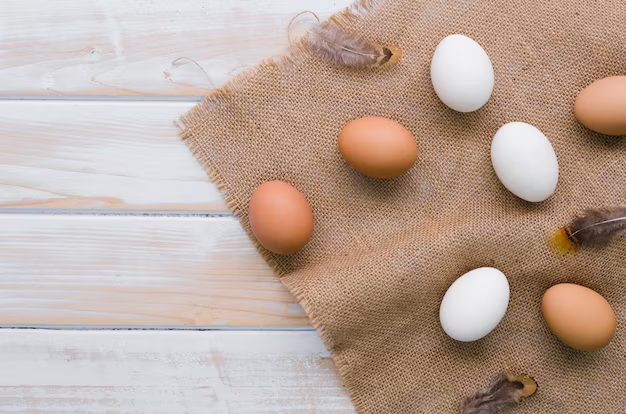Fresh Eggs in Your Fridge: How Long Do They Really Last?
Eggs are a staple in many households worldwide, prized for their versatility, nutritional value, and relative affordability. Whether you're preparing a fluffy omelet, baking a delicious cake, or scrambling a quick breakfast, eggs often play the lead role. But when it comes to storing fresh washed eggs, particularly in the refrigerator, how long can you expect them to last while still being safe and delicious? Let's crack open the topic and explore every informative and practical angle.
🥚 Understanding Egg Freshness
Before diving into specifics about refrigeration, it's useful to understand what "freshness" entails. Egg freshness doesn't just relate to the date they were laid but encompasses their safety, flavor, and texture. As eggs age, their quality degrades due to factors like air penetration through the shell, which affects the egg white and yolk.
Quality Indicators
Bloom: The natural protective coating, known as the "bloom" or "cuticle," is found on eggs when they're laid. It helps keep out bacteria and dust.
Whites and Yolks: Fresh eggs usually have thick whites and rounded yolks. Over time, whites become runnier, and yolks flatten out.
Smell: A fresh egg is nearly odorless. If your egg emits a sour smell, it’s a sign it has gone bad.
How Long Do Washed Eggs Last in the Refrigerator?
The practice of washing eggs varies by region. In the United States, for instance, eggs are commonly washed to remove potential contaminants but this process removes the bloom.
Refrigeration Facts
Shelf Life: Once washed, eggs should ideally be stored in the refrigerator to prolong freshness. Washed eggs generally have a shelf life of about 3 to 5 weeks in the refrigerator, maintaining a high level of quality during this time.
Location Matters: Place your eggs on an internal shelf rather than the door. This minimizes exposure to temperature fluctuations which can affect the eggs’ longevity.
Check Dates: Many cartons have a "sell-by" or "expiration" date, but properly stored eggs often remain safe to eat beyond these dates. A rough guide is that eggs can still be good for a week or two past their expiration dates.
🗃️ Egg Storage Tips for Optimal Quality
To ensure your eggs stay as fresh and safe as possible, consider the following best practices:
🏠 Home Guidance
Keep Clean: Avoid washing eggs until right before use if you plan on storing them long-term.
Consistent Temps: Keep your refrigerator cold and consistent, ideally at 40°F (4°C).
Check for Cracks: Discard those with cracks before storing, as they can harbor bacteria.
🍴 Kitchen Practices
Rotation: Use older eggs first—consider maintaining a "first in, first out" system.
Egg Carton: Store eggs in their original carton to shield them from strong odors and flavors of other foods in the fridge.
Ensuring Safety and Detecting Spoilage
While "how long" is the big question, "how safe" is equally crucial. Here are some methods for ensuring your eggs are safe for consumption:
Safety Tests
Float Test: Place the egg in a bowl of water. Fresh eggs lay flat on the bottom, while older eggs will stand upright or float—indicating it's time to toss them.
Visual Inspection: Always crack eggs into a separate bowl before adding them to ingredients. This allows for a visual and sniff test before using.
Cooking and Consumption
Thorough Cooking: Cooking eggs thoroughly reduces the risk of foodborne illnesses like salmonella.
Avoid Raw Consumption: Refrain from eating raw or undercooked eggs unless they're pasteurized.
🤔 Understanding the Context: Why Refrigeration?
Egg storage methods vary widely around the world, influenced by cultural, regulatory, and environmental factors. This prompts the question, why refrigeration?
Global Storage Practices
- Non-Refrigerated: In many parts of Europe, eggs are not washed and thus retain their natural protective layer, making refrigeration less crucial.
- Regulatory Guidelines: In some countries, laws mandate egg washing and refrigeration to reduce bacterial risk, primarily from salmonella.
Benefits of Refrigeration
Preservation: Refrigeration drastically slows the rate of aging, maintaining quality and safety.
Safety: It mitigates the risk of salmonella and other pathogens that can be present in eggs.
Overview: Fresh Egg Longevity at a Glance
📌 Key Takeaways:
- Duration: Fresh washed eggs last about 3 to 5 weeks in the fridge.
- Storage Location: Keep them in the main fridge body, not the door.
- Testing: Conduct regular checks (float test, smell check) to gauge freshness.
- Consumption: For safety, cook eggs thoroughly.
Closing Insights
In summary, the longevity of fresh washed eggs in the refrigerator is a balance between adhering to proper storage practices and understanding the egg's inherent quality indicators. Understanding these elements empowers you to maximize your eggs' usability, ensuring that every dish you prepare is both safe and tasty. Whether you're scrambling or baking, knowing the ins and outs of egg storage keeps you a step ahead—and let's face it, who doesn't appreciate a well-kept kitchen staple? 🌟

